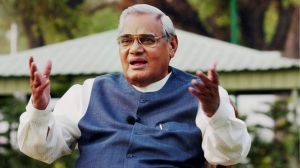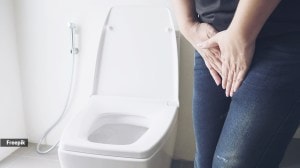‘I got breast implants at 30, removed them in my 40s. What I thought would make me confident ended up giving me years of pain’
Why a growing number of women are reporting unexplained symptoms, inflammation and anxiety linked to implants—prompting a surge in explant surgeries.
 Photo for representation (Credit: Pixabay)
Photo for representation (Credit: Pixabay)When 30-year-old Archana Singh*, a media marketing professional in Delhi, chose to undergo breast implant surgery, she believed it would rebuild her confidence and ease her insecurities, give her body confidence while making pitches. What she did not anticipate was that the procedure would bring years of discomfort, fear and a series of health concerns. Now 46, she looks back on the experience with regret and having removed her implant two years ago, breathes a sigh of relief.
“The relief,” she says, “is not just in my body, but in my mind,” says Singh, free from the constant anxiety and fear of developing complications, including the dreaded possibility of cancer. This is a type of lymphoma (cancer of the immune system) that forms in the scar tissue or fluid around the implant, not in the breast tissue itself. “Everything is out there at the click of a button — symptoms of cancer, risks of implants. I’d read that there’s no evidence they cause cancer, except very rare lymphoma, but when you have something inside your body, you think the worst,” she says. However, it was not until she experienced excruciating pain and infection after a bout of Covid that she decided to get rid of implants.
What is breast implant illness?
Over time, women who have undergone breast implants, usually made of silicone, complain of several kinds of discomfort. Some of them have a cluster of conditions like fatigue, brain fog, neck, joint and shoulder pain, rashes, hair loss, anxiety, headache, sleep problems, weight changes and gastrointestinal disorders.
“Most women report a cluster of conditions, which overlap with many other conditions. Some women have reported over 50 symptoms. But they feel better after the explant surgery, when the implants are removed. Despite reported associations, current medical science does not have enough information to establish a causal link between implants and these symptoms. But the discomfort does go away,” says Dr Rakesh Kumar Khazanchi, chairman, Plastic, Aesthetic and Reconstructive Surgery, Medanta, Gurugram. Recent studies suggest that bacterial biofilms, which form around implants, might be a key factor in triggering immune and inflammatory responses.
Many celebrities, like Pamela Anderson and Victoria Beckham, have publicly discussed why they got their implants removed. Some of them complained of malpositioning, deformities, inflamed lymph nodes, extreme fatigue and implant rupture.
According to Delhi-based cosmetic surgeon, Dr Anup Dhir, “Wear and tear means that the implant may not be effective after a 10-to-20-year period. This causes rupture or leakage. Saline implants will deflate visibly, while silicone ruptures can be silent, detected only through MRI or ultrasound. Sometimes scar tissue surrounding the implant hardens, causing pain or changes in breast appearance. The physicality and weight of a woman may result in sagging or asymmetry, prompting a revision surgery or removal.” Both surgeons are seeing an uptick in women seeking explant surgeries.
Body image vs discomfort
Recalling her decision to get silicone breast implants, Singh admits to having self-esteem issues and body dysmorphia after childbirth. She felt buoyant for a while but then became self-conscious as the implants took time to settle into a more proportionate shape. She hid behind loose clothes, avoiding attention.
The real problems began years later. Around 2012, strange rashes, bruises and cuts began appearing overnight on her breasts. Doctors reassured her repeatedly that nothing was wrong, attributing her skin changes to the benign fibroids she had been previously diagnosed with. Some said her rashes were a side effect of the hormone drugs she was taking to deal with PCOS (polycystic ovary syndrome), a condition characterised by irregular periods, excess male hormones or androgens and cysts on the ovaries.
By 2021, the unease had grown physical. Intimacy was uncomfortable, massages hurt, lying on her stomach was difficult, and chronic back and shoulder pain had become routine. Then came a frightening episode after a mild COVID-19 infection. “Ten days later, I had excruciating pain inside my breasts, like it was piercing me from inside. Doctors thought it was post-COVID muscle pain but since it persisted, two years ago I thought I had enough,” says Singh.
There was a time when she feared the pain could be indicative of cancer. “Now, breast implants can complicate screening procedures like mammography because the implant can obscure breast tissue and make it more difficult for the doctor to see. So, the implant has to be pushed back to make breast tissue visible,” says Dr Khazanchi.
What is a breast implant removal surgery all about
According to Dr Khazanchi, this is done under anaesthesia and involves making an incision in the breast, removing the implant along with any surrounding scar tissue (capsule), and then closing the cut. “The surgeon may also perform other procedures simultaneously, such as a breast lift or implant replacement and typically takes one to several hours,” he adds.
The explant surgery — far more complex than insertion — took more than an hour and cost over a lakh. Her implant surgery had cost her Rs 2.5 lakh. “Removing the implants meant carefully separating them from tissues they had adhered to over time,” says Dr Khazanchi.
Singh’s relief was immediate; her back and shoulder pain eased and she could lie on her stomach. Her fear of developing a tumour subsided too. But most importantly, she is comfortable with the way her body is rather than living with fear and anxiety. “Nothing is worth more than health and wellbeing. The gap was in my mind, not in my body,” she says.
(Name changed to protect privacy)
- 01
- 02
- 03
- 04
- 05































